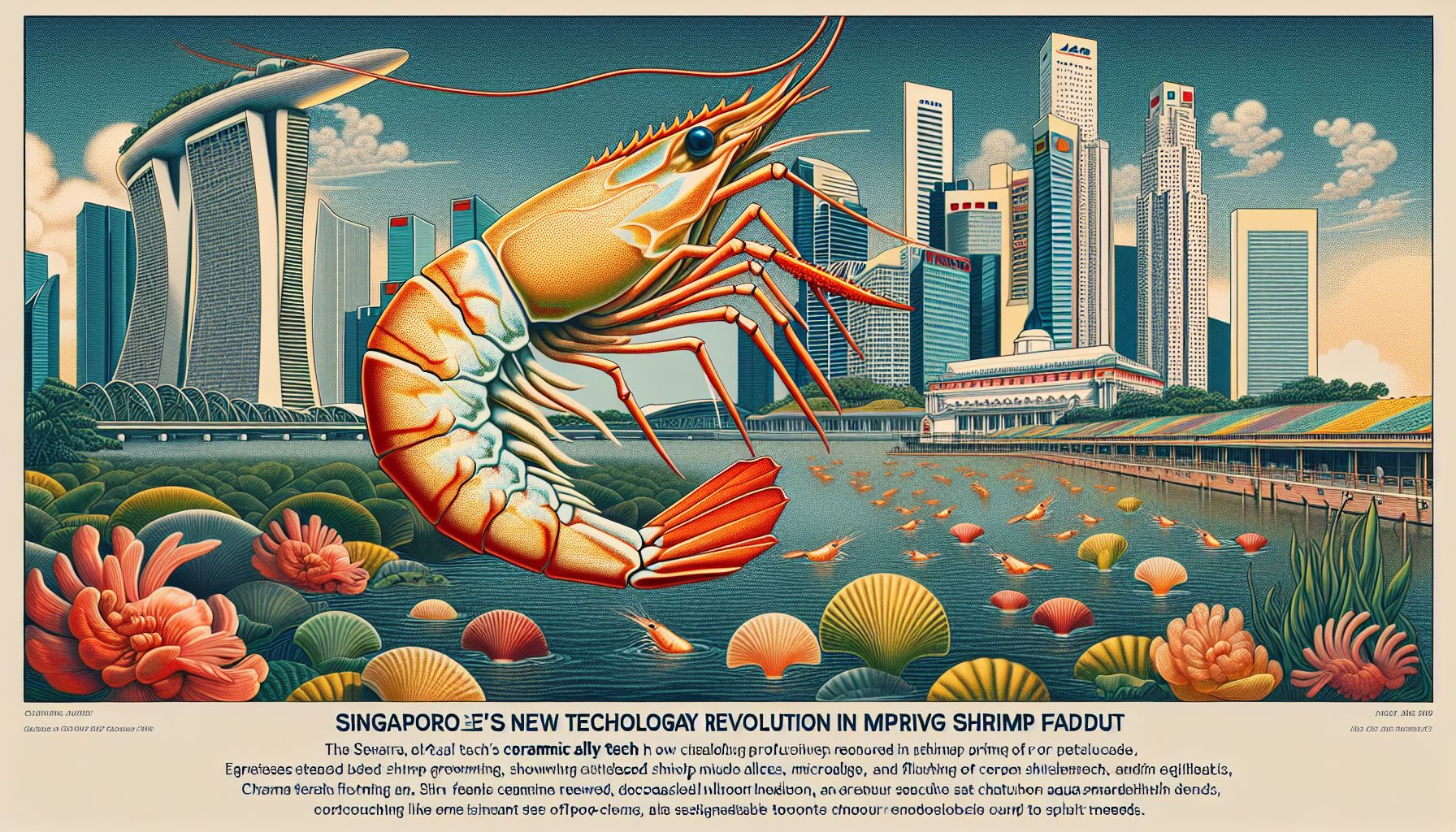Singapore's New Tech Revolutionizes Shrimp Production

Singapore, Wednesday, 16 April 2025.
JAH Cultura’s ceramic alloy tech advances shrimp farming by boosting growth and microalgae, reducing feed needs, marking a sustainable aquaculture milestone.
Technological Innovation in Aquaculture
JAH Cultura, a pioneer in agricultural technology based in Singapore, has spearheaded the development of a ceramic alloy technology that significantly enhances shrimp production. This advancement is aimed at addressing the global demand for sustainable aquaculture by increasing shrimp growth rates and facilitating microalgae proliferation, an essential component of the shrimp diet [1]. This technology notably lowers the need for conventional feed, which is a major cost and environmental concern in shrimp farming [1].
Impacts on Food Security and Sustainability
The introduction of JAH Cultura’s technology comes at a critical time when food security and sustainability are paramount concerns. Shrimp is a major source of protein globally, and innovations that maximize yield while minimizing environmental impact are crucial. By reducing feed requirements, the new technology not only decreases operational costs for shrimp farms but also mitigates the ecological footprint associated with feed production, such as deforestation for farmland and resource-intensive feed crops [1].
The Broader Context of Agricultural Innovation
This breakthrough in shrimp farming aligns with broad trends in the agri-food industry, which is increasingly pivoting towards technology-driven solutions. Across Asia and beyond, startups and established firms alike are embracing technological innovations—from AI-enhanced farming systems to lab-grown proteins—that promise to improve productivity while preserving natural resources [1]. Singapore’s role as a focal point for these developments highlights the city-state’s commitment to being at the forefront of agri-tech advancements.